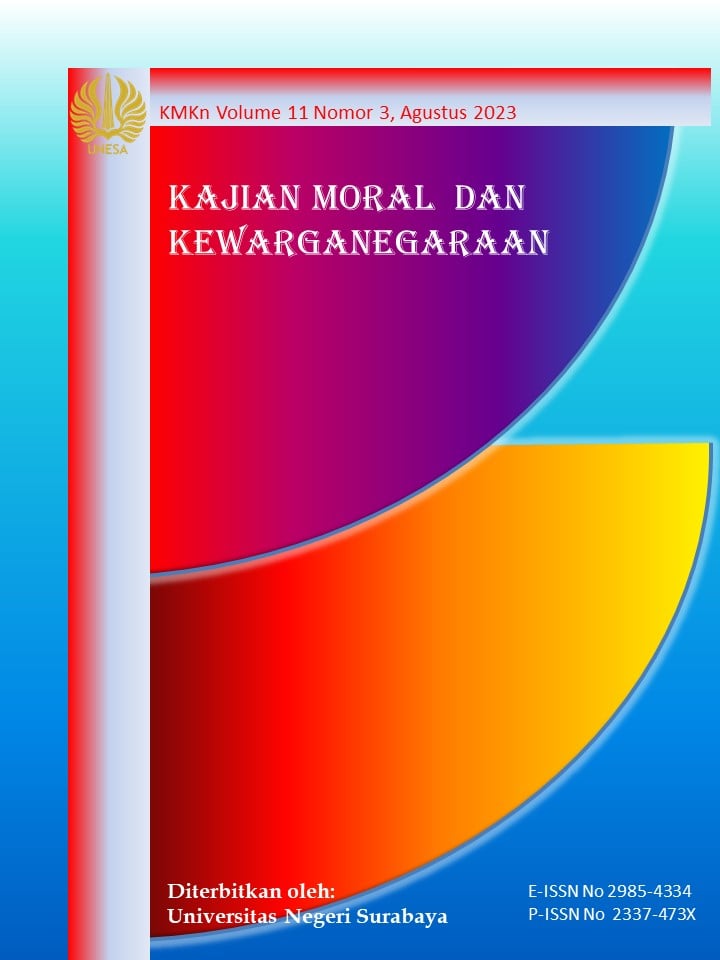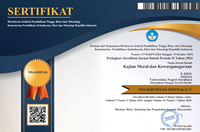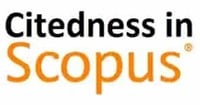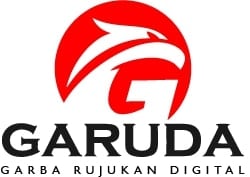Penerapan Model Pembelajaran Blended Pada Mata Pelajaran PPKn Di MAN 1 Magetan Sebagai Solusi Dari Pembelajaran Di Masa Pandemi Covid-19
Keywords:
Pembelajaran Blended, PPKn, Solusi PembelajaranAbstract
The implementation of distance learning which has been carried out online from the beginning of the pandemic to the present, is feared to be a negative influence on the social aspects of student. Therefore, there is a need for innovation in the implementation of learning, which at first was purely online into collaborative learning offline (face to face) or commonly referred to as Blended Learning. This study aims to determine the success of applying the blended learning model to PPKn subjects at MAN 1 Magetan as a learning solution during the Covid-19 pandemic. This research is a qualitative research with a descriptive statistical approach. The results showed that before the application of blended learning there were only 19 students who were able to achieve KKM or class completeness of only 57.58%. After implementing blended learning, there was an increase in students' understanding of Civics learning material. Student test results showed that there were 30 students who were able to achieve the KKM. Acquisition of the percentage of classical completeness score is 90.91, where the percentage of classical completeness of student learning is above 80 and is included in the very good category. Based on this, the application of the blended learning model in Civics subjects at MAN 1 Magetan can be a solution for learning during the Covid-19 pandemic.
Keywords: Blended Learning, Civics, Learning Solution
Downloads
Downloads
Published
How to Cite
Issue
Section
 Abstract views: 99
,
Abstract views: 99
, PDF Downloads: 126
PDF Downloads: 126





